Sunday Feb 22, 2026
Sunday Feb 22, 2026
Wednesday, 8 November 2023 00:10 - - {{hitsCtrl.values.hits}}
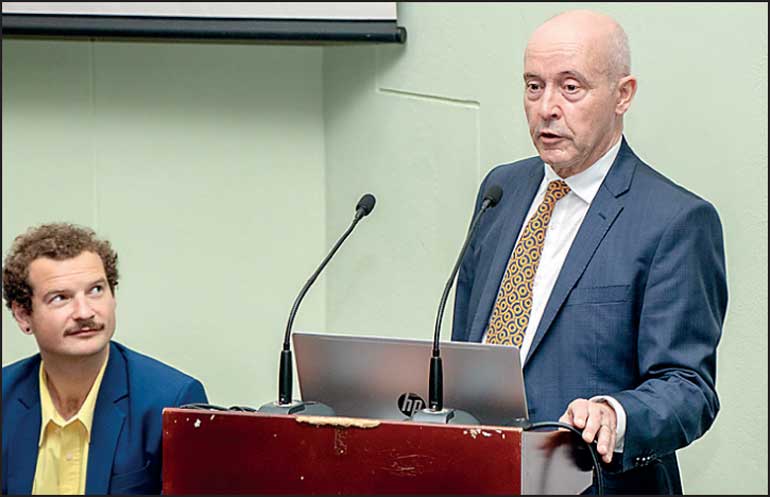
GSI New Zealand Project Program Director Nick Allison
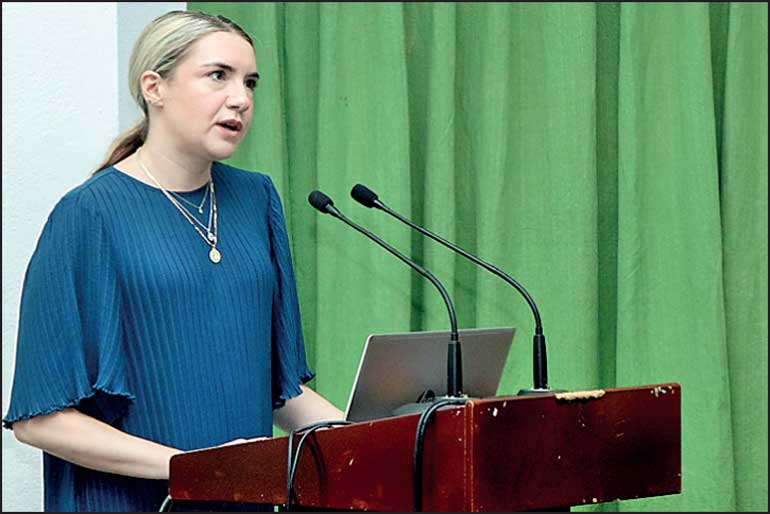
GS1 Community Engagement Director (Apparel and General Merchandise) Eleanor Gayle
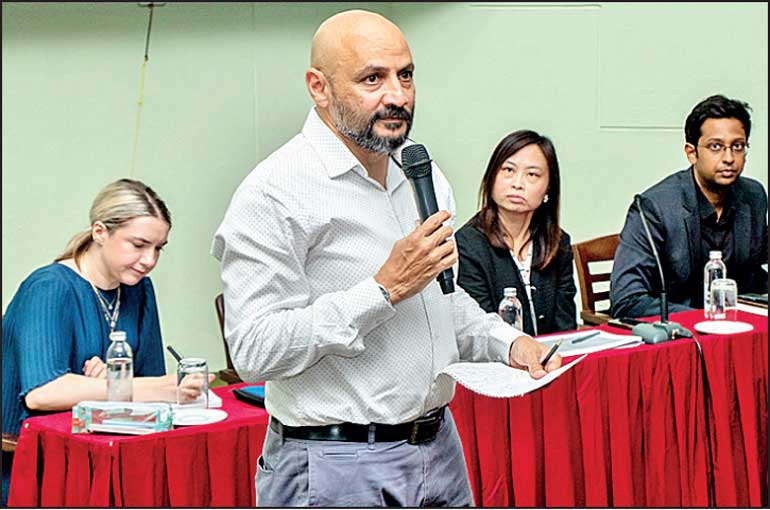
Joint Apparel Association Forum Secretary General Yohan Lawrence addressing audience
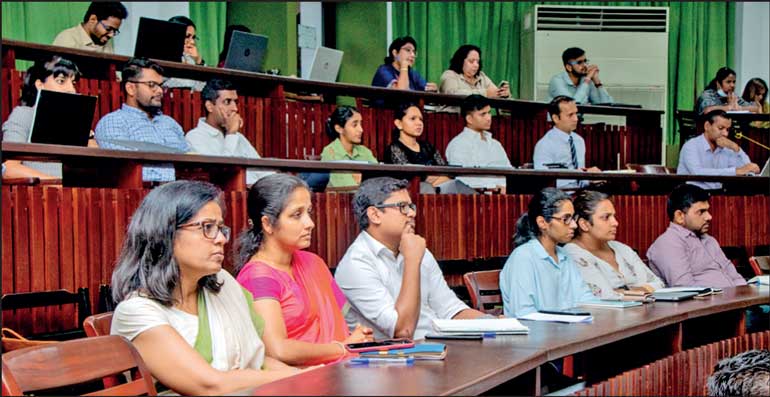
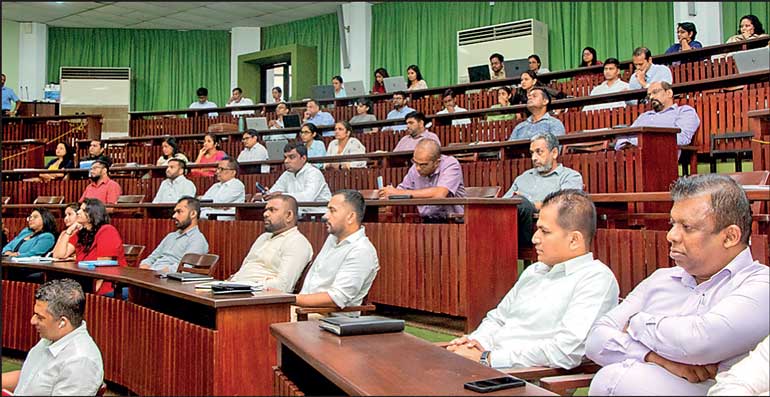
The Joint Apparel Association Forum (JAAF), in collaboration with GS1Lanka, recently organised a workshop aimed at introducing Sri Lanka’s apparel industry to the globally recognised GS1 standards.
The workshop emphasised the adoption of GS1 Digital Link, cutting-edge technology and a standard for the exchange of product data, currently undergoing trials in Sri Lanka. This workshop is part of a larger GS1 project aiming to help Sri Lankan companies meet evolving and potential new EU Textile Regulation requirements, including the implementation of the Digital Product Passport, and the German Supply Chain Due Diligence Act.
GS1, the internationally renowned organisation responsible for managing barcodes, announced that beginning in 2027, traditional barcodes on products will be replaced by a QR code. The shift towards QR codes is driven by the numerous advantages it offers to consumers. These QR codes will not only be a replacement for traditional barcodes but will also be connected to the internet, enhancing consumer experience and information accessibility.
“Annually, regulations result in approximately 9.2 million kilometres of label tape, equivalent to 12 round trips to the moon in a year,” said project GSI New Zealand Program Director Nick Allison. “The transition to Digital QR labels has the potential to eliminate at least 343,000 metric tons of CO2 emissions from the industry every year. With over 2 million companies employing GS1 standards, over 500 million products currently feature GS1 barcodes worldwide.”
By scanning the new QR code with their smartphones, consumers and retailers will gain access to information about the product, including its origin, composition and ecological footprints. This innovative approach to product labelling is expected to revolutionise how consumers and businesses interact with apparel and other consumer goods.
“We live in an era where consumers are choosing more environmentally friendly products – which means they like to know where their clothing is manufactured, sourced and if it is certified. This is also seen in the regulatory landscape, especially in the EU where transparency and traceability is an important element,” stressed GS1 (Apparel and General Merchandise) Community Engagement Director Eleanor Gayle. “We are seeing this clarion call from brands, manufacturers and service providers. We need standardisation so we can make data access a team sport’,” Gayle added. “It will no longer be that manufacturers operate in one sphere and brands in another; it really has to be a united front, creating a paradigm shift in the supply chain.”
This transformative initiative has also seen the involvement of organisations like TrusTrace, a leading supply chain traceability software solutions provider, which plays a pivotal role in facilitating the transition towards the GS1 Digital Link and QR code system.
JAAF Secretary General Yohan Lawrence said: “JAAF and GS1 Sri Lanka’s collaborative effort to introduce GS1 standards and GS1 Digital Link represents a significant step forward for the apparel sector in Sri Lanka. It not only ensures compliance with evolving EU regulations but also empowers consumers with greater access to product information, fostering transparency and sustainability within the industry.”